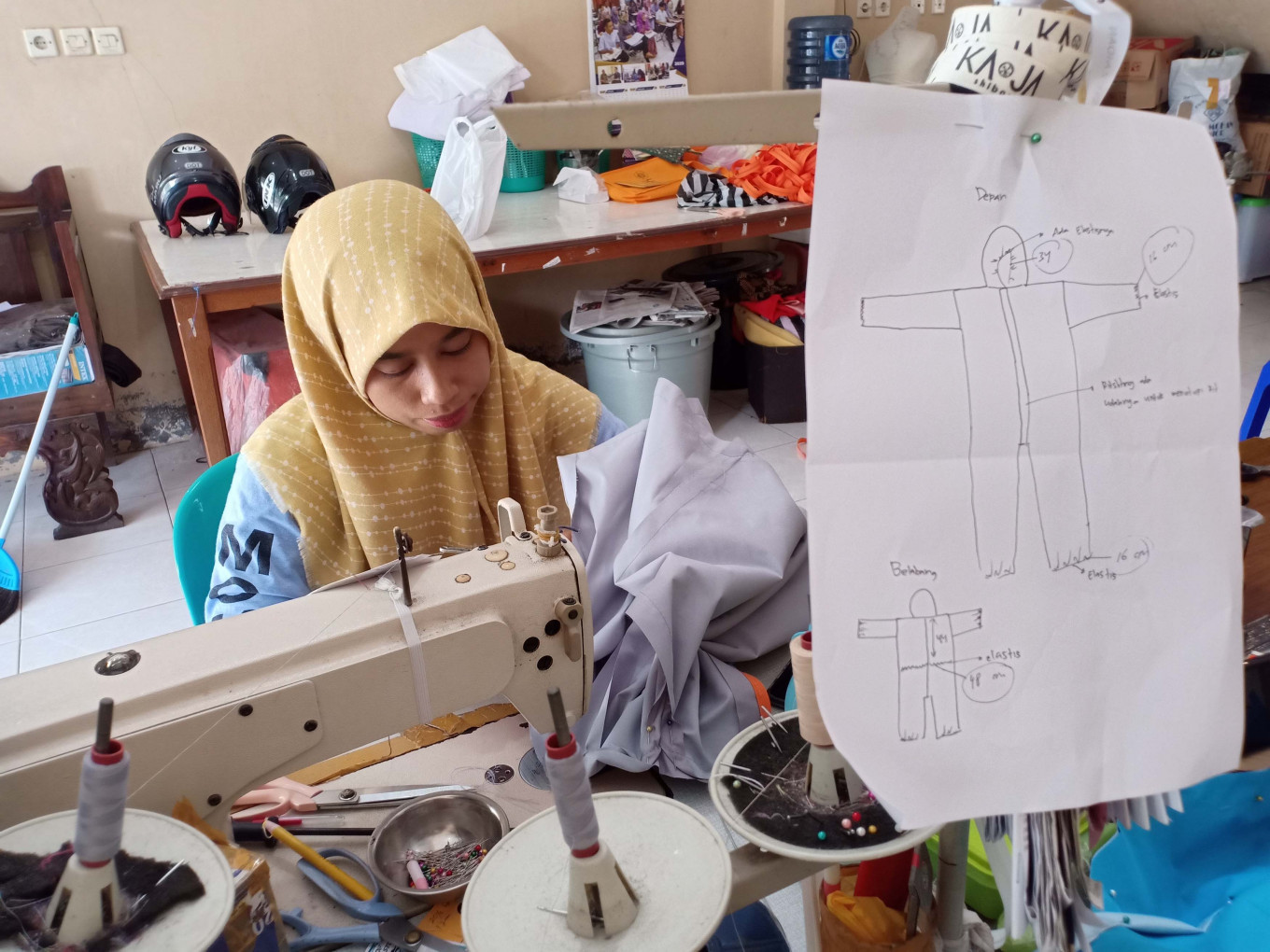Popular Reads
Top Results
Can't find what you're looking for?
View all search resultsPopular Reads
Top Results
Can't find what you're looking for?
View all search resultsLack of data hinders government’s plan to help ultra-micro enterprises
The government’s plan to provide social assistance for ultra-micro enterprises affected by the COVID-19 pandemic has been hindered by a lack of data, Cooperatives and Small and Medium Enterprises Minister Teten Masduki has said.
Change text size
Gift Premium Articles
to Anyone
T
he government’s plan to provide social assistance for ultra-micro enterprises affected by the COVID-19 pandemic has been hindered by a lack of data, Cooperatives and Small and Medium Enterprises (SMEs) Minister Teten Masduki has said.
Teten said on Thursday that the government planned to provide direct cash assistance as pandemic relief for unbanked small enterprises, particularly those that had taken out loans from the Finance Ministry’s ultra-micro financing (UMi) program.
Teten said small businesses, which employed nearly 97 percent of the country’s workforce, had suffered a 57 percent decline in sales since the outbreak unfolded.
“We want to propose that such enterprises receive social assistance,” Teten said in an online briefing. “But we have had difficulties collecting detailed data on how many of them can be classified as the new poor, which would make them eligible for direct cash assistance.”
Apart from the cash assistance, the government also plans to provide a loan interest subsidy for borrowers under the micro, small and medium enterprises category. The subsidies will cover a loan interest ranging from 2 to 6 percent for up to six months.
Through UMi, small businesses are currently eligible for a short-term loan at a maximum Rp 10 million (US$670.47) with an interest of between 2 and 4 percent.
Over 60 million small businesses, which make up more than half of the country’s economy, are suffering losses and shutting down operations because of the travel and social restrictions put in place to contain the fast-spreading coronavirus.
The Cooperatives and SMEs Ministry launched Thursday an online learning platform called edukukm.id to further help small businesses sell on-demand products during the crisis.
With a budget of less than Rp 400 million, the platform offers courses on various subjects such as the production of personal protective equipment (PPE), face masks, hand sanitizers and herbal drinks.
On e-commerce platform Bukalapak, demand for medical equipment such as masks, hand sanitizers and thermometers recently rose by 90 percent, said Teten, who formerly served as the presidential chief of staff.
“This learning platform is for all small businesses and cooperatives in the country,” the ministry’s deputy of human resources development, Arif Rahman Hakin, said.










